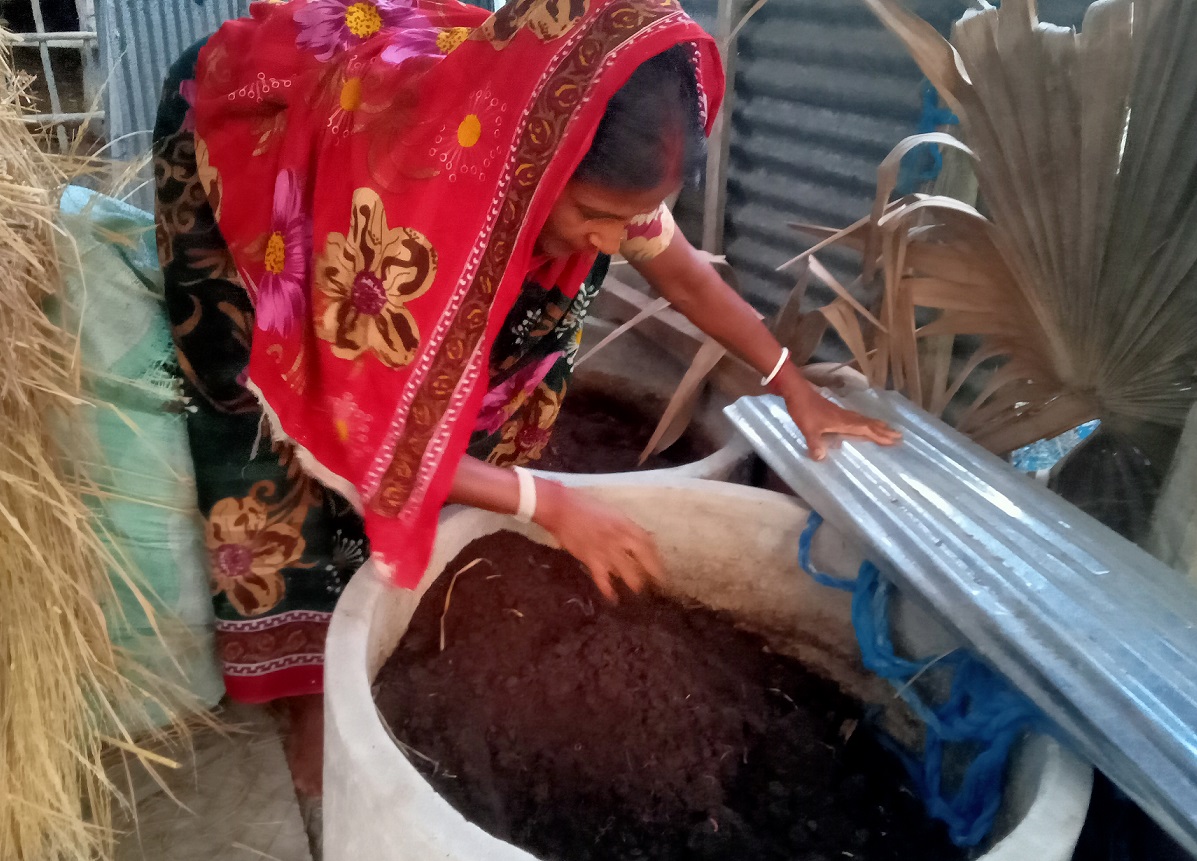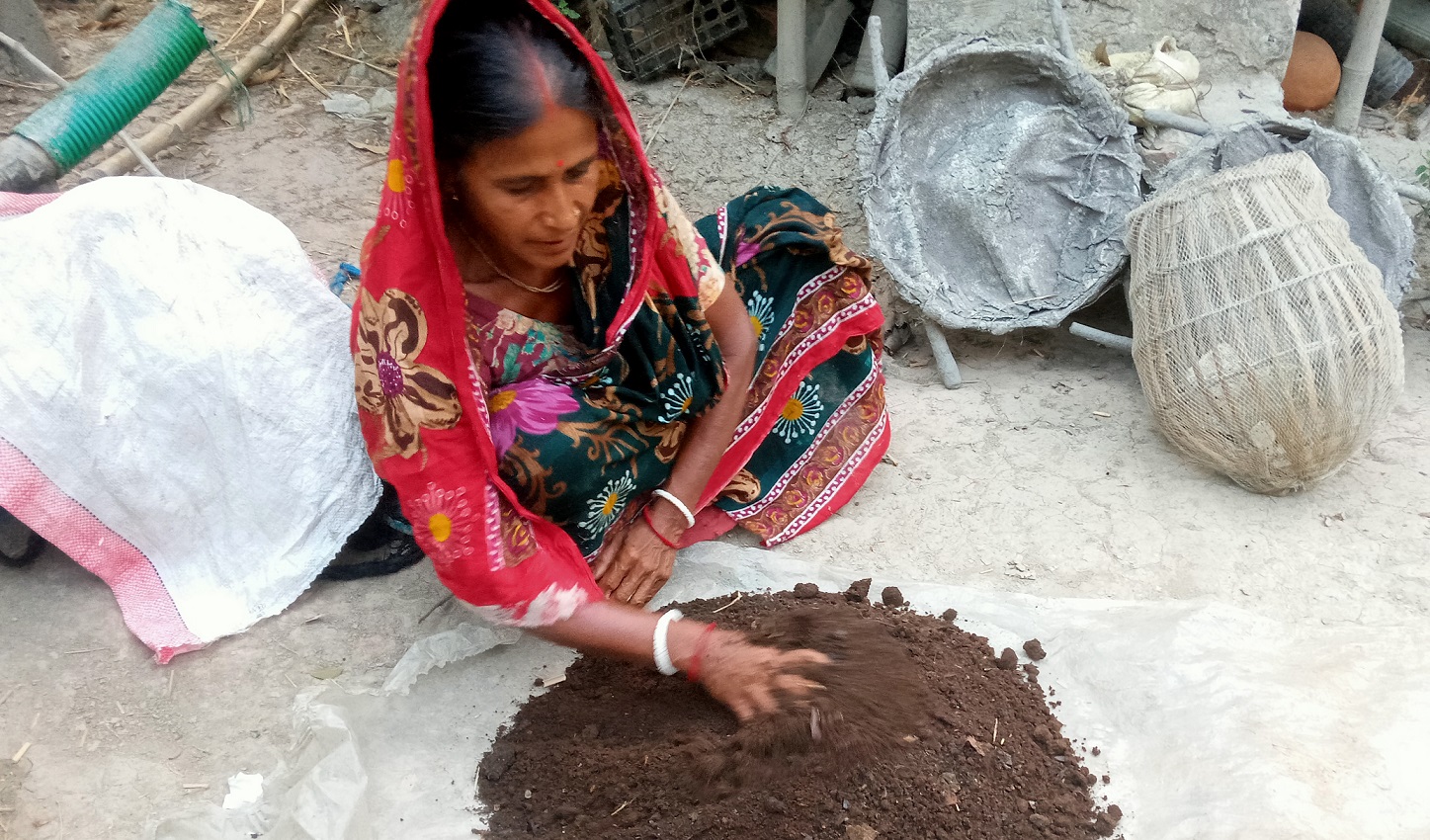By Protima Rani, from Shyamnagar, Satkhira
In Betangi village of Shyamnagar Sadar Union, Satkhira, coastal farmer Anita Rani (45) has turned her homestead into a hub of organic farming innovation. Living with her husband and three children, she cultivates vegetables year-round on 10 kathas of land.
Like many coastal farmers, Anita once relied on chemical fertilizers to boost her crops. Initially, yields were satisfactory, but over time the soil lost its fertility and harvests declined. Sometimes vegetable seeds would not even sprout. As salinity increased due to climate change, she found herself struggling and searching for alternatives.

Her turning point came when she met a representative of BARCIK through a neighbor, senior farmer Karuna Rani. She was introduced to vermicompost fertilizer and encouraged to attend a training session. After learning about its benefits and practical methods of production, Anita began making her own compost in 2010 with just one pit. Today, she operates 10 pits producing vermicompost, supplying both her farm and the local market.
Anita Rani said, “I use this organic fertilizer in my vegetable fields, in paddy cultivation, and even in fish ponds,”. She went on saying, “The results are excellent as my crops grow better, and fish production improves.” Alongside her own use, she sells the compost. In 2025 alone, she earned BDT 12,000 from verrmicompost sales. She also provides training in different areas, invited by BARCIK and other institutions, earning an additional BDT 6,000–7,000 annually as facilitator.
Local farmers mention that chemical fertilizers and pesticides have already damaged soil fertility and reduced yields. Organic alternatives like vermicompost offer a sustainable solution. In order to expand such practices, both government and non-government support is needed.

